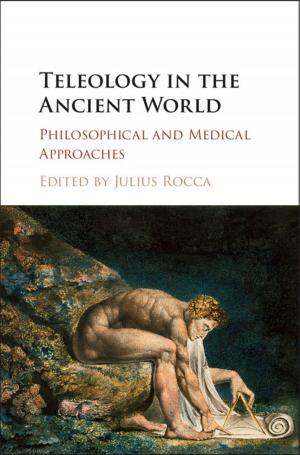Cicero on Politics and the Limits of Reason
The Republic and Laws
Nonfiction, Religion & Spirituality, Philosophy, Ancient, Social & Cultural Studies, Social Science| Author: | Jed W. Atkins | ISBN: | 9781107502994 |
| Publisher: | Cambridge University Press | Publication: | October 17, 2013 |
| Imprint: | Cambridge University Press | Language: | English |
| Author: | Jed W. Atkins |
| ISBN: | 9781107502994 |
| Publisher: | Cambridge University Press |
| Publication: | October 17, 2013 |
| Imprint: | Cambridge University Press |
| Language: | English |
A prolific philosopher who also held Rome's highest political office, Cicero was uniquely qualified to write on political philosophy. In this book Professor Atkins provides a fresh interpretation of Cicero's central political dialogues - the Republic and Laws. Devoting careful attention to form as well as philosophy, Atkins argues that these dialogues together probe the limits of reason in political affairs and explore the resources available to the statesman given these limitations. He shows how Cicero appropriated and transformed Plato's thought to forge original and important works of political philosophy. The book demonstrates that Cicero's Republic and Laws are critical for understanding the history of the concepts of rights, the mixed constitution and natural law. It concludes by comparing Cicero's thought to the modern conservative tradition and argues that Cicero provides a perspective on utopia frequently absent from current philosophical treatments.
A prolific philosopher who also held Rome's highest political office, Cicero was uniquely qualified to write on political philosophy. In this book Professor Atkins provides a fresh interpretation of Cicero's central political dialogues - the Republic and Laws. Devoting careful attention to form as well as philosophy, Atkins argues that these dialogues together probe the limits of reason in political affairs and explore the resources available to the statesman given these limitations. He shows how Cicero appropriated and transformed Plato's thought to forge original and important works of political philosophy. The book demonstrates that Cicero's Republic and Laws are critical for understanding the history of the concepts of rights, the mixed constitution and natural law. It concludes by comparing Cicero's thought to the modern conservative tradition and argues that Cicero provides a perspective on utopia frequently absent from current philosophical treatments.















